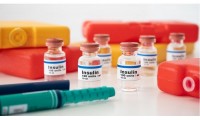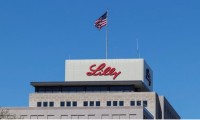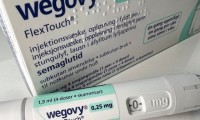-
Takeda to Pull Lung Cancer Drug from Market After Failed Confirmatory Study
- Source: drugdu
- 197
- October 10, 2023
-
Ozempic, Wegovy drug prescriptions hit 9 million, surge 300% in under three years
- Source: drugdu
- 109
- September 30, 2023
-
Meitheal partners with Chinese company for US licencing of insulin biosimilars
- Source: drugdu
- 97
- September 30, 2023
-
Will Big Pharma engage in Medicare price negotiations? AZ, BMS say they will
- Source: drugdu
- 106
- September 29, 2023
-
Lilly Sues Pharmacies, Spas and Wellness Centers Over Unapproved Mounjaro Copycats
- Source: drugdu
- 100
- September 23, 2023
-
In warning letters, FDA tells 8 companies to stop selling illicit eye drugs
- Source: drugdu
- 104
- September 14, 2023
-
Astellas withdraws IRA lawsuit after avoiding CMS’ price negotiations list
- Source: drugdu
- 189
- September 8, 2023
-
Weight-loss drug firm becomes Europe’s most valuable
- Source: drugdu
- 228
- September 6, 2023
-
US announces first ten drugs up for Medicare price negotiation
- Source: drugdu
- 103
- August 31, 2023
-
CMS
- Source: drugdu
- 94
- August 31, 2023
your submission has already been received.
OK
Subscribe
Please enter a valid Email address!
Submit
The most relevant industry news & insight will be sent to you every two weeks.













